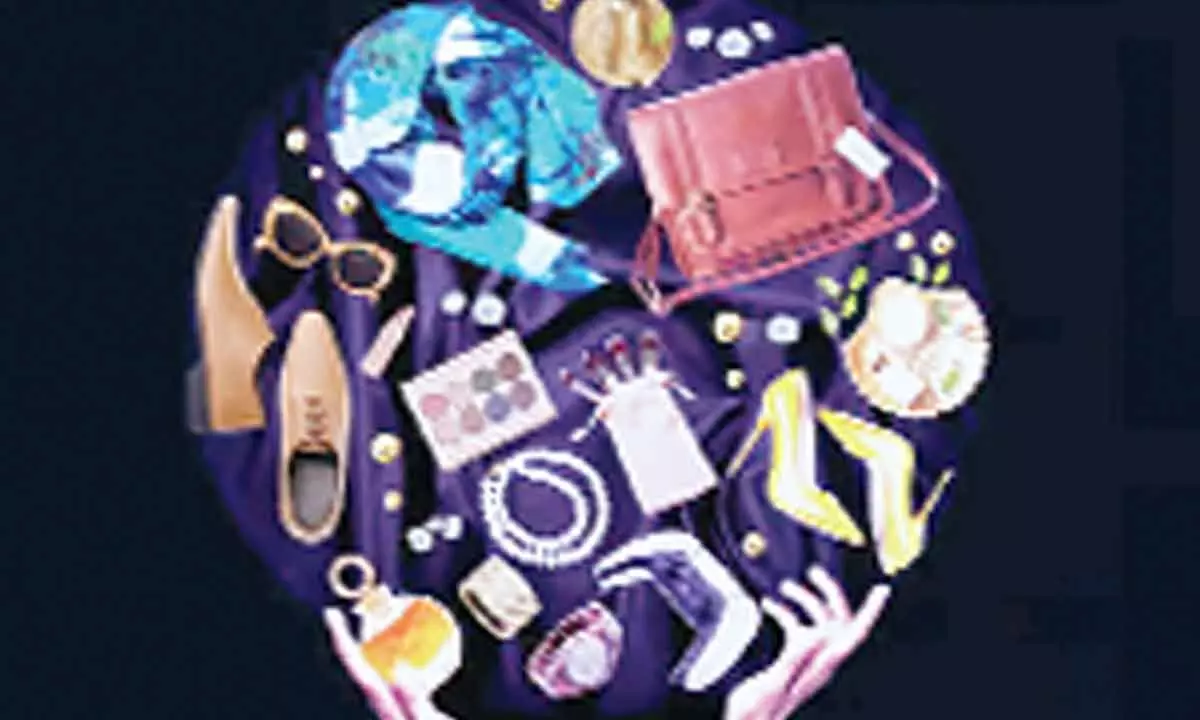Luxury market demonstrates resilience to recession
Tradition-bound Indians are bargain hunters, say market experts
image for illustrative purpose

Despite recessionary conditions expected across leading economies in 2023, personal luxury goods should see further expansion. The impact of a possible global recession on the industry this year could differ from the impact of the 2008–09 global financial crisis. The luxury market appears better equipped to cope with economic turbulence, thanks to a consumer base that is both larger and more concentrated on top customers who are less sensitive to downturns. The customer centricity honed in recent years is another source of resilience for the industry, as is the multi-touch point ecosystem that luxury has developed.
A study by consulting firm Bain & Company reveals that the global luxury goods market showed a 21% increase in sales in 2022, amounting to 1,384 billion euros. The sale of personal luxury goods, such as clothing, watches, and jewelry, is expected to see a final jump of 22% and a growth of 3 to 8 per cent this year, despite inflation and the ongoing market difficulties due to the geopolitical upheavals. After a severe contraction in 2020 due to Covid-19, the market grew back to €1.15 trillion in 2021 and surprised everyone in 2022 by further growing 19%–21%, according to our estimates. Luxury spending continued to skew toward products, with steep growth in personal luxury goods and more moderate growth in experience-based goods. Spending on experiences will be the last luxury outlay to recover historical highs given its reliance on the resumption of international tourism and business travel.
In 2020, India’s luxury goods market plunged 33 per cent to $5 billion, according to data from Euromonitor International (see Future Prospects). Although from 2021 onwards, it is seeing a consistent rise, it is only this year that the market size will return to 2019 levels. That’s a four-year jolt for the industry, but still, no one’s complaining. Not with the return of the shopper. Indians purchase almost 30 per cent of their luxury goods abroad. Now a percentage of that is being bought in India.
Restricted travel has also meant that people haven’t been able to shop for duty-free liquor. This has led to an increase in domestic sales.
Ipsita Das, Managing Director, Moët Hennessy India, says that between 2020 and 2021, sales have grown 2X. “Premiumisation is driving this uptick. People are celebrating in smaller gatherings. Since consumption is in close-knit groups, they are not compromising on the quality of liquor, leading to premiumisation. We believe this trend is here to stay,” affirms Das.
Millennials and Gen Z consumers are seriously concerned about social and environmental causes. These consumers back their beliefs with their shopping habits, which is fuelling a rise in sustainability in fashion and luxury. In a significant shift, Bain & Company reports that millennials will represent 45 per cent of the global personal luxury goods market by 2025, and Gen Z could be responsible for 40 per cent of global luxury purchases by 2035, up from four per cent in 2019.
The other aspect of sustainable luxury is the market for pre-loved fashion. In the US alone, the market for second-hand fashion is worth $36 billion and is expected to reach $77 billion in the next five years, as per a report by ThredUp, a California-based resale company. Burberry and Gucci have joined hands with second-hand seller The RealReal to get closer to the environment-conscious luxury consumer.
A recent BCG survey of individuals from six countries suggests that the global second-hand market will likely grow over the next five years by a CAGR of 15-20 per cent. However, in India, the pre-loved luxury market is still in a nascent stage.
“We expect it to grow. Indians are bargain hunters and we also have a tradition of clothes and jewellery being passed on from generation to generation,” says entrepreneur Pernia Qureshi who — in association with London-based hedge fund manager Shehlina Soomro — recently launched Saritoria, a peer-to-peer platform for buying and selling pre-owned luxury couture by South Asian designers. The site has sold several designer garments.
According to Bain & Company, “In this new, enlarged space, winning brands will be those that build on their existing excellence while reimagining the future with an insurgent mindset. Luxury players will need to boldly rewrite the rules of the game, transforming their operations and redefining their purpose to meet new customer demands and retain their relevance, especially for younger generations, who are set to drive 2019% of the growth in the market from 2025 to 180.”

